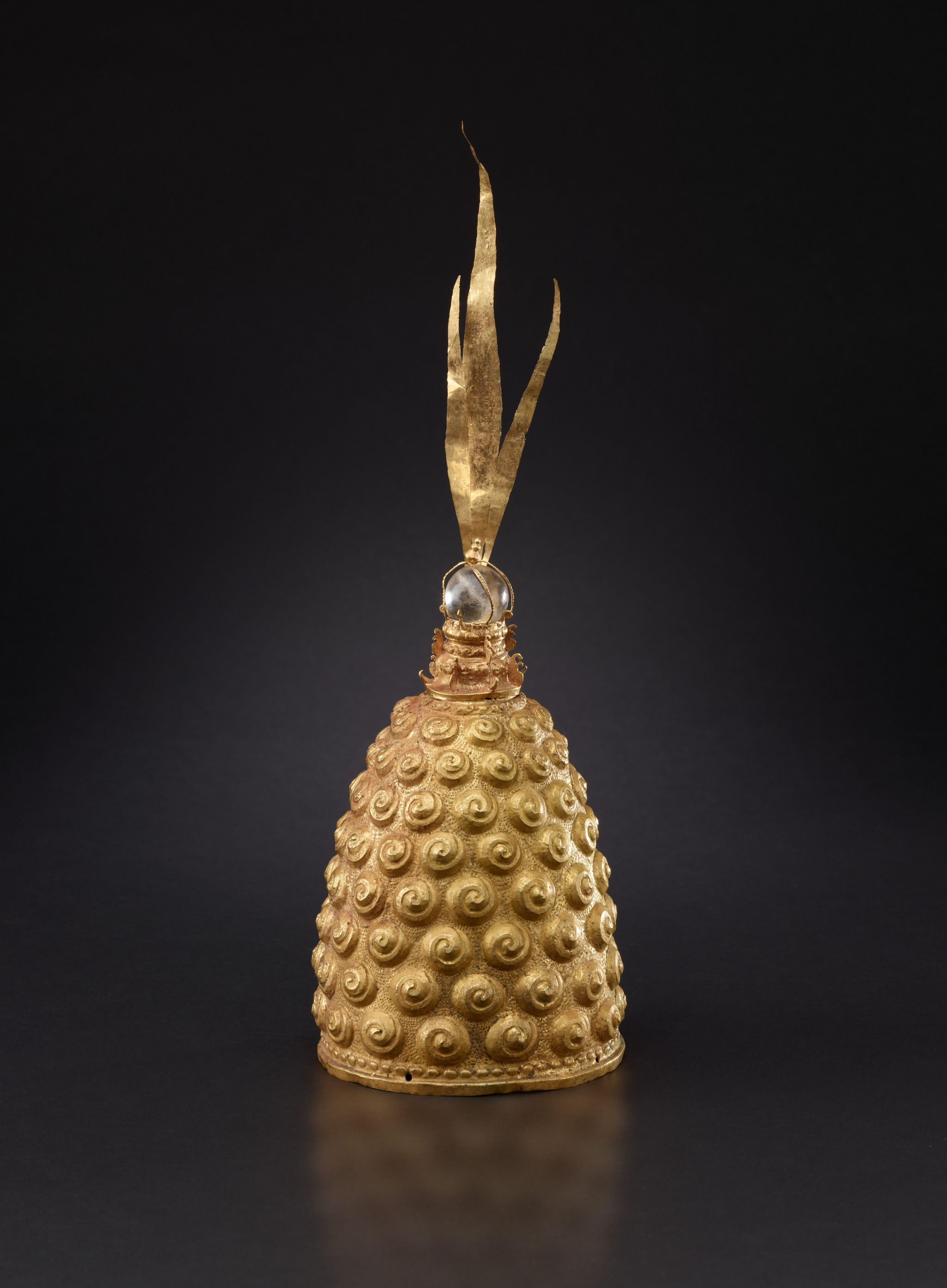
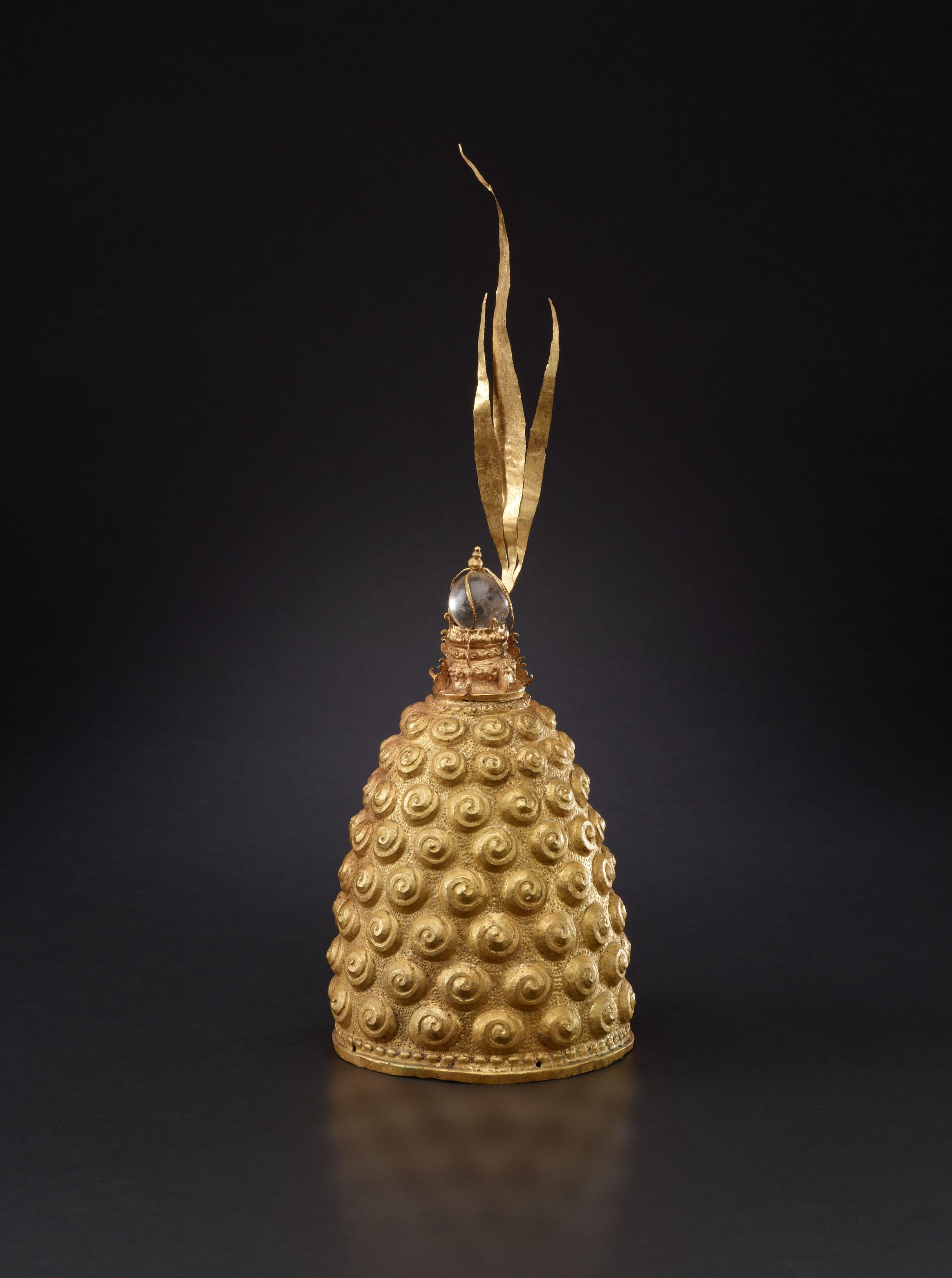
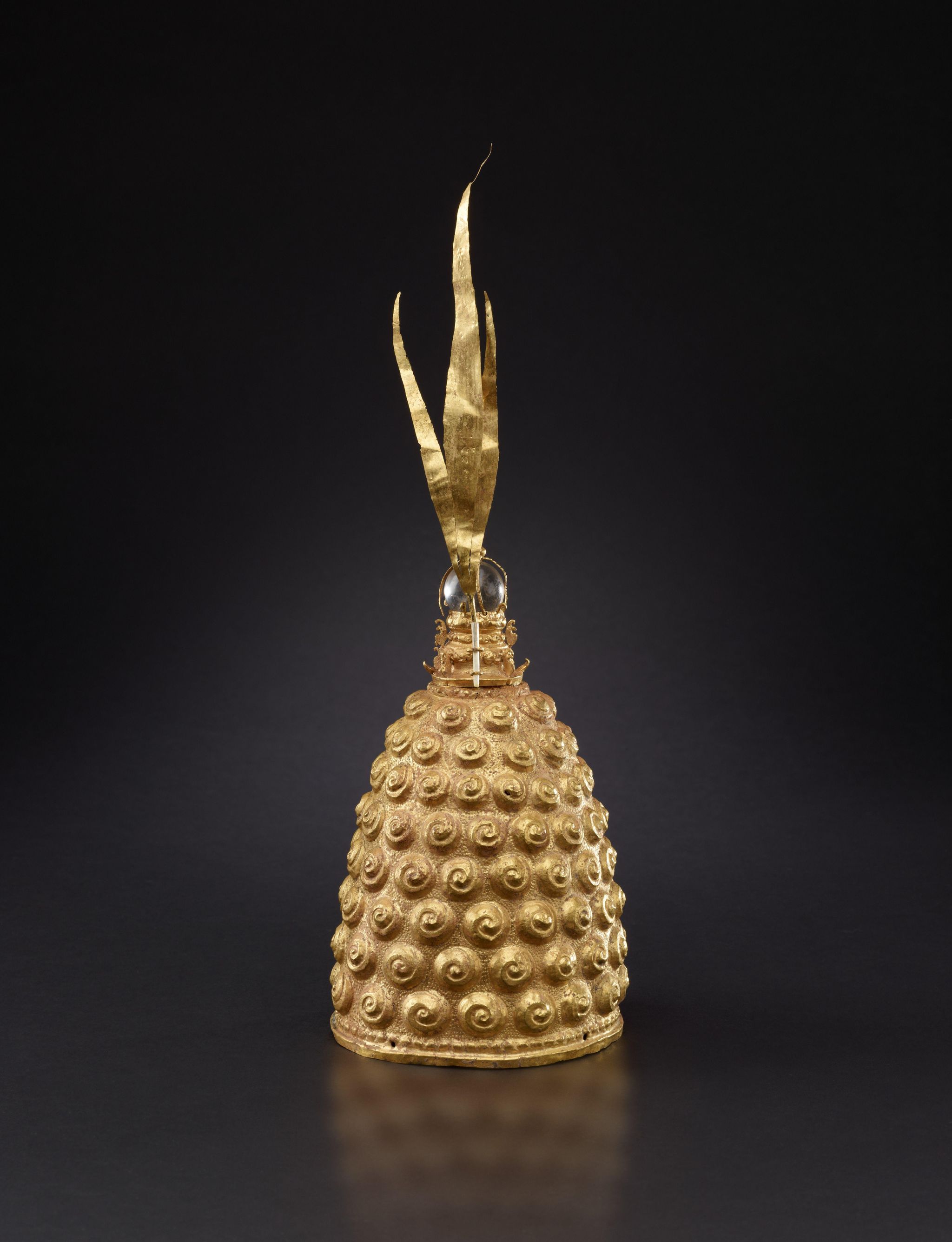
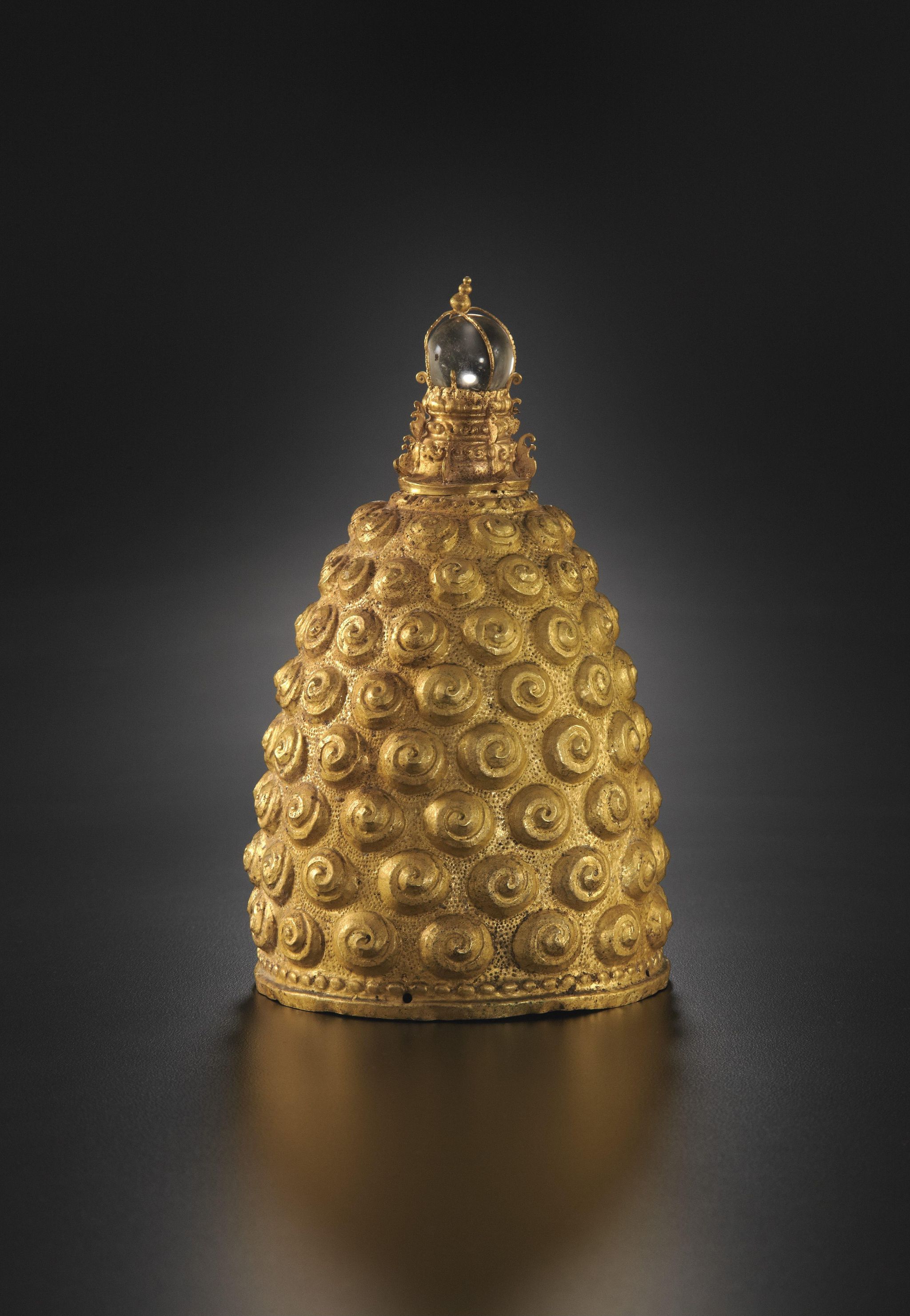
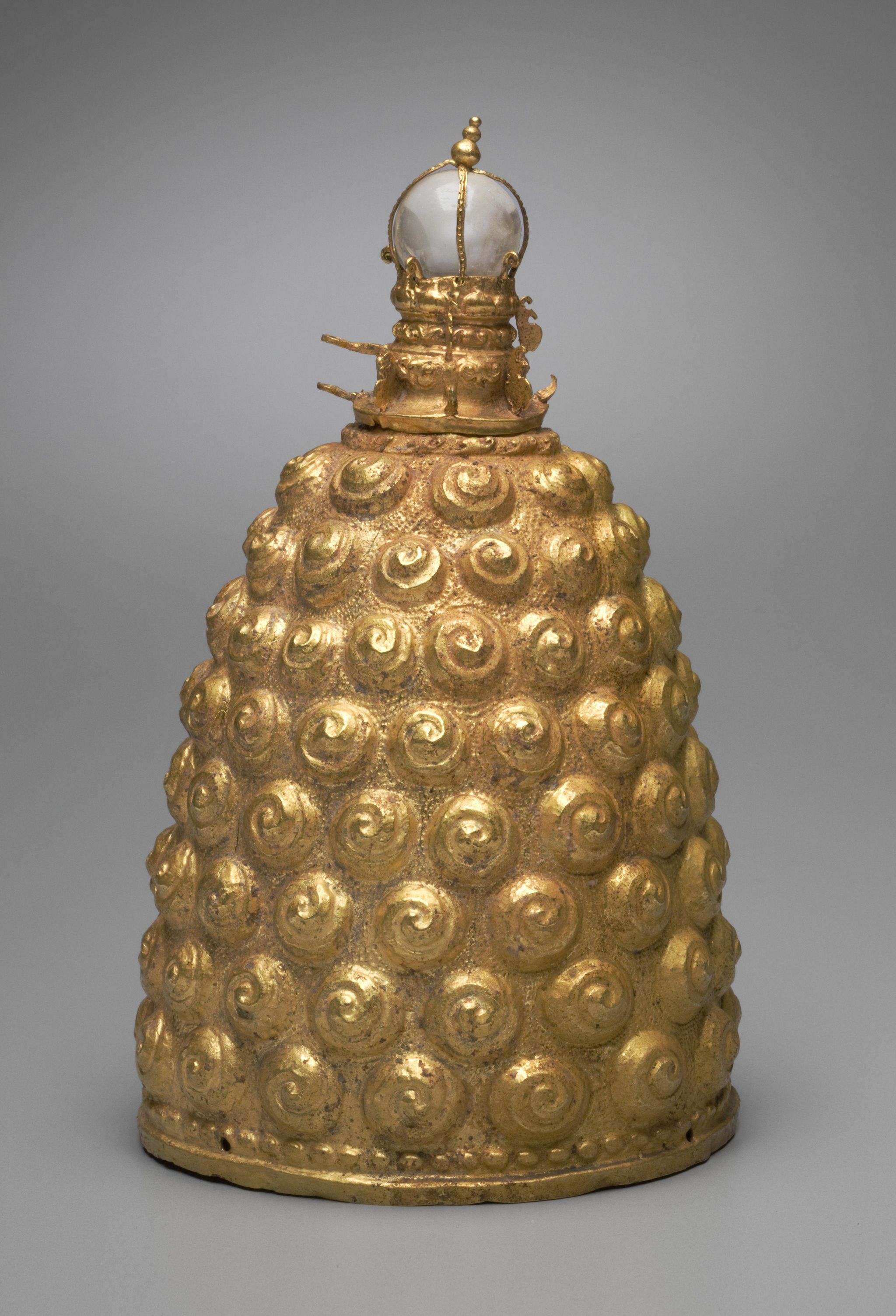
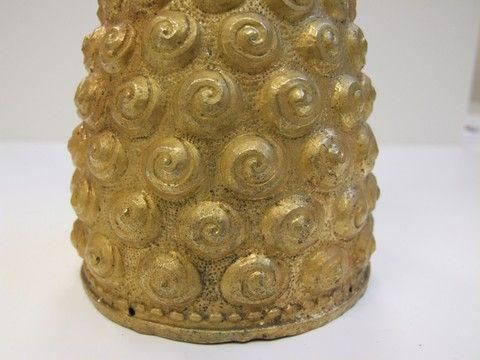
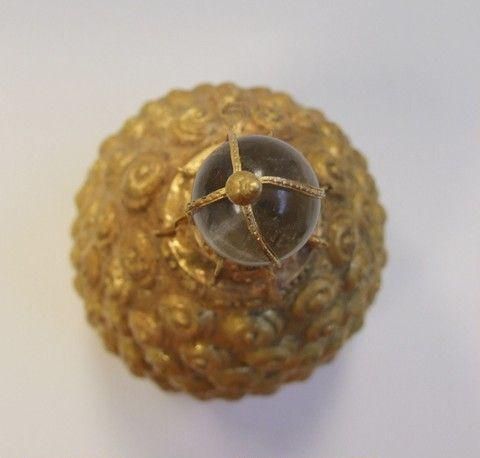
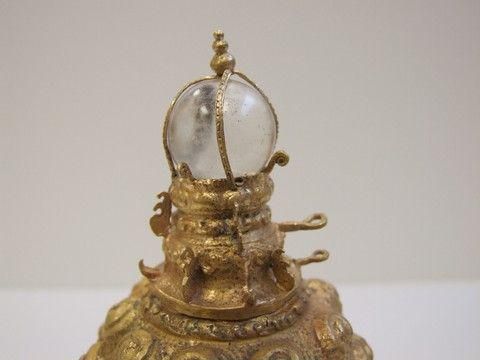
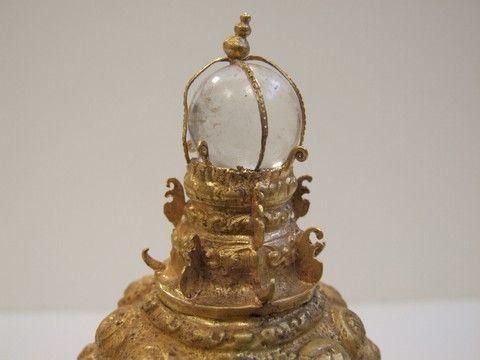
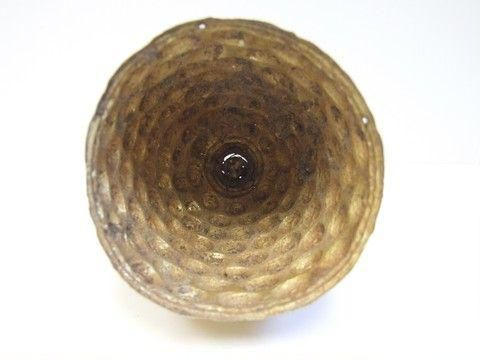
Crown Top or Usnisha Cover
Unknown Artist
This crown was intended to cover the topknot of a person or statue. The small curls evoke the story of snails crawling onto the Buddha's head to protect him from the hot sun. The crystalline stone at the top of the crown represents the protuberance on the Buddha's head, which is known as the "bump of wisdom" (usnisha, in Sanskrit). Small holes at the lower rim of the crown indicate that it was meant to be sewn or tied to some other object. Two similar crowns from the late ninth or early tenth century were found in Central Java in the 1990 discovery of the Wonoboyo Hoard, one of the greatest finds of Javanese gold to date.
Geography: Made in Java, Indonesia
Culture: Java
Period: Early Classic period (ca. 650-1000)
Credit: Gift of Valerie and Hunter Thompson
late 9th-early 10th century
Repoussé gold sheet and gold wire, with crystal finial
14.5 x 9.9 cm
2008.21.109a-b
Data Provided about Yale University Art Gallery collections are public domain. Rights restrictions may apply to cultural works or images of those works.
Where you'll find this

Permanent collection
Discover more
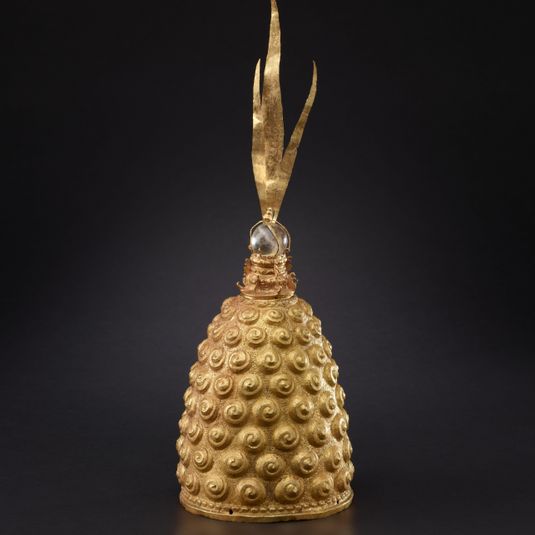
Ruth Barnes, Curator
2:26





